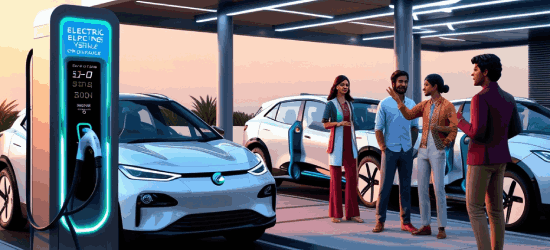India’s push toward an electric mobility revolution will require substantial private investment, robust policy backing, and integrated infrastructure solutions, industry leaders stressed at a high-profile discussion on e-mobility in emerging economies.
Speaking at a panel on “Establishing Transformative, Integrated E-Mobility Ecosystems in Emerging Economies,” in the recently concluded India Energy Week 2025 top executives from the energy and mobility sectors underlined that while India has made strides in e-mobility adoption, sustained growth will hinge on addressing infrastructure and financial hurdles.
Vishal Kapoor, CEO of Energy Efficiency Services Limited (EESL), highlighted the scale of investment needed to support the transition. “One major hurdle is the installation of distribution transformers and capacity augmentation. Currently, with a limited number of EVs, this is manageable, but as the ecosystem grows, large-scale private sector investment—amounting to several lakh crores—will be needed,” he said.
The Indian government has implemented multiple policies, such as the Faster Adoption and Manufacturing of Electric Vehicles (FAME) scheme, aimed at encouraging e-mobility. However, experts argue that private capital will be crucial in expanding charging networks and integrating renewable energy into transportation.
The article was published at Indoen












